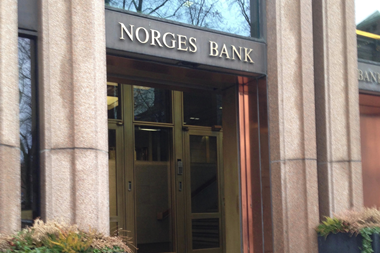A detailed and engaging report by a top Norwegian anthropologist into the culture at the country’s sovereign wealth fund has painted a picture of an hierarchical organisation with communication problems – and a strategy that is far too short-term.
The 89-page study entitled “Anthropological gaze, stories, and reflections on NBIM culture” by Tone Danielsen, associate professor in Kristiania University College’s department of leadership and organisation, was completed in December for internal use at Norges Bank Investment Management (NBIM), but last week released for all to see.
Nicolai Tangen, NBIM’s chief executive officer, posted the document on LinkedIn, saying: “One year ago we invited an anthropologist into the fund to have an inside look. The thinking was: if it’s good, then it is good. If it’s bad, then it is good, because then we know what to improve!”
NBIM was already at work on Danielsen’s improvement tips, said Tangen, whose post attracted much praise for – and surprise at – his openness in publishing the report.
But Danielsen says the work – based on her year of observations within NBIM’s offices in Oslo and abroad – aims to provide a researcher’s gaze on “discussions and decisions, on what changes and what remains the same – not to provide a what-to-do list”.
Nevertheless, she posits shortcomings at the 600-strong organisation in strategy and communication.
Long-term vision
“NBIM lacks a long-term strategy, and its strategy seems underused to create predictability and to communicate the direction,” she says in the report.
“Important information is not always communicated and received by the relevant people. Organisational changes, all levels, need good information – but also two-way communication.”
NBIM’s current strategy plan, Strategy 25, is based on the management mandate, says Tone, which for all state institutions are very long-term.
“Still, for an outsider, it seems a little surprising that an institution whose mandate is ‘to safeguard and build wealth for future generations’, does not have a longer-term strategy,” the academic remarks.
Strategic documents are there to give directions on organisational issues, as stated in NBIM’s Strategy 25 document, she says, but complains that these issues are not clearly stated.
As an example, Tone cites the increased workload on NBIM staff due to the war in Ukraine and high oil and gas prices.
The Government Pension Fund Global, Norway’s sovereign wealth fund for which NBIM is the asset manager, took in almost the same amount of money per month in 2022/23, as per year previously, according to the report.
“NBIM does not need 12 times as many employees to deal with 12 times as much money, but a couple more might come in handy,” says Tone.
Lacking communication amid reorganisation
Reorganisations are given as another example where communication is lacking.
“Many employees, and their leaders, said they do not know until decisions are made,” says Tone adding that this impacts their everyday work.
An employee named only as Kristin is quoted saying: “I worked many places, but never a place where the changes are so abrupt as here. We reorganise all the time.”
Tone, who worked in the military sector for two decades, says that globally, things are now changing fast, and that the purpose of strategies is to enable an institution to prepare and plan under conditions of uncertainty.
“The 600 people at NBIM invest the surplus from the trade of the Norwegian ‘black gold’ and build financial wealth for future generations,” she says, calling this a great responsibility.
“Being an important and mighty state institution, it might be worth making a longer-term strategy,” says Tone.
Hierarchies and micromanagement
The anthropologist also uncovered a culture of micromanagement.
Staff member Hans is quoted in Tone’s report as saying the organisation is very hierarchical.
“Every little nitty-gritty thing is sent all the way to the top,” he says, adding: “This micromanagement makes a serious bottleneck in our everyday work.”
Worse than this, Tone comments that micromanagement can undermine employees’ trust and respect for their leaders, and break motivation for new leaders.
While the report devotes much space to the supportive way staff have been treated by co-workers and leaders in cases of financial losses and mistakes, Tone uses last year’s court case brought by Elisabeth Bull Daae alleging gender discrimination and other unfair treatment to stress the need for improved people skills at NBIM.
Many employees said that they felt “affected, ashamed, and tainted” by stories written in the media about the trial, the academic said.
“They witnessed the organisation they love and are proud of working in, being dragged through the mud on a daily basis in Norwegian media,” she said.
NBIM has a tradition in dealing well with crises caused by the financial market or professional matters, Tone says, but quotes one employee as saying: “When it comes to the soft issues […] we are on the right path, but still not good”.
In times of crisis, says Tone, it is vital to give staff enough information that their stories and understandings of the case don’t depend on newspaper articles and gossip.
Read the digital edition of IPE’s latest magazine























